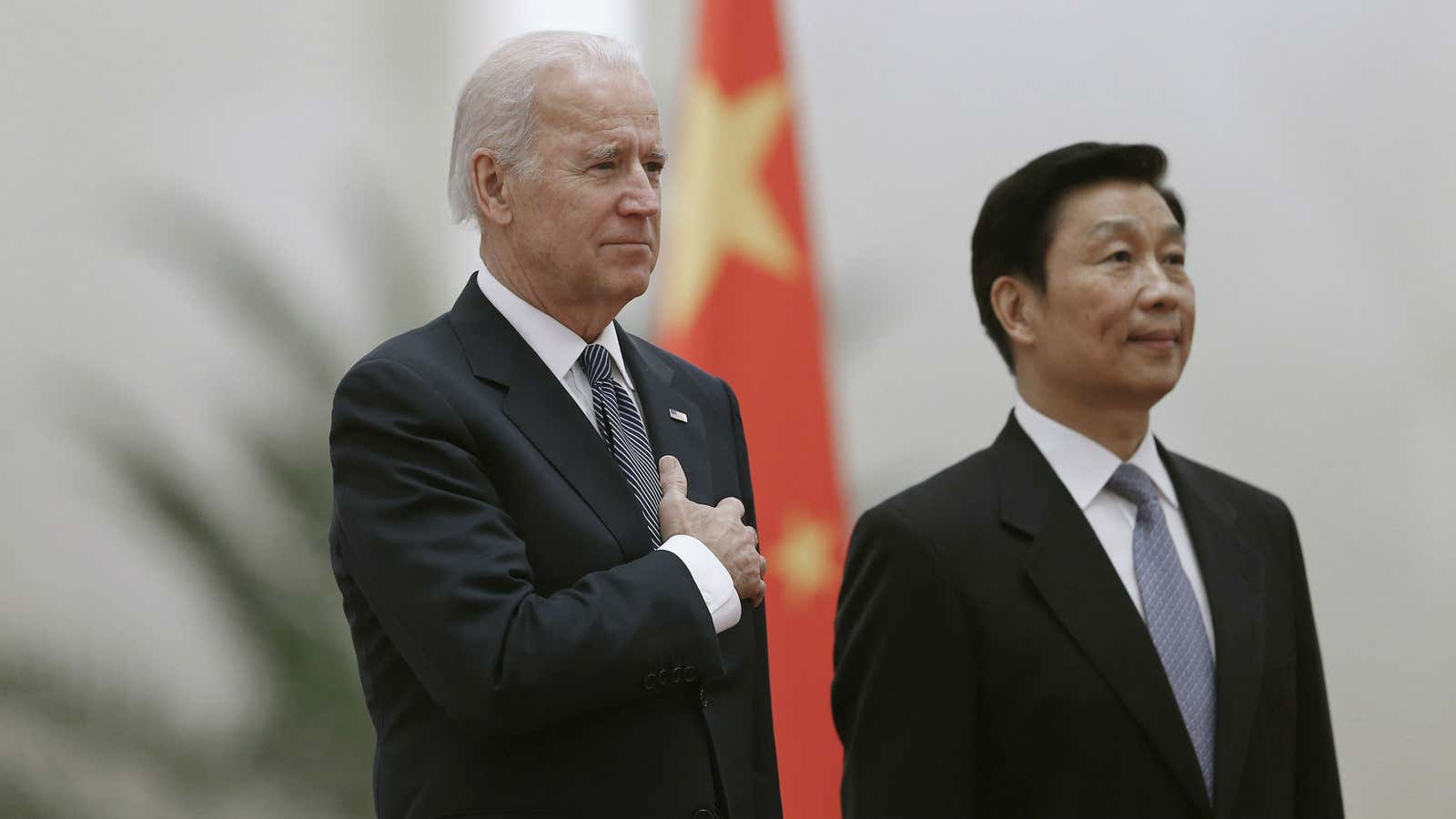Once again, US vice president Joe Biden has caused a minor scene. Biden, on the first of a two-day visit to China, told a group of Chinese citizens at the US embassy in Beijing to stand up to their government. Speaking to a group of several hundred waiting in a line to submit visa applications for America, Biden said, “Innovation can only occur when you can breathe free, challenge the government, challenge your teachers, challenge religious leaders.”
The comment comes at a particularly delicate moment in relations between China, the US, and Japan. It’s perhaps a sign Biden will also stand up to Beijing over China’s recent decision to declare an “Air Defense Identification Zone” (airspace that foreign aircraft can’t travel through without Chinese permission) over disputed territories in the East China Sea. (Earlier in the day Biden told Chinese president Xi Jinping that America and China’s relationship must be built on trust.)
But it’s also an example of the conundrum that US officials, especially ones who are popular in China, create for their Chinese counterparts. Over the past few years, American officials from Treasury secretary Jack Lew to US ambassador Gary Locke have found favor with Chinese internet users who see them as refreshingly unlike Chinese officials.
Stories of Lew eating inexpensive dumplings in May and Locke carrying his own umbrella in 2011 have circulated widely on Chinese social media—images that are in sharp contrast to the lavish spending associated with Chinese officials. Biden in 2011 ate at a hole-in-the-wall Beijing snack shop, spawning what became known as Biden’s “noodle diplomacy” for its appeal to the public.
These instances have been riling enough that one state-run publication published an editorial (in Chinese) this spring, accusing US officials of deliberately trying to embarrass China and pointing out that Biden had spent over $1 million on a trip to Europe this year. (Here’s a summary in English.)
Thus, Chinese officials are likely annoyed that Biden’s visit has so far been warmly welcomed, even as the US has sided with Japan over China’s air-defense zone. Chinese publications referred to him as an “old friend” and internet users have taken to wondering what local foods he’ll eat this time. One blogger on Sina Weibo wrote (registration required), “Hi Mr. Biden! What Beijing specialty food do you want to eat for this visit? We recommend a warm hot pot for the Beijing winter.”
Gang Yang contributed additional reporting.




